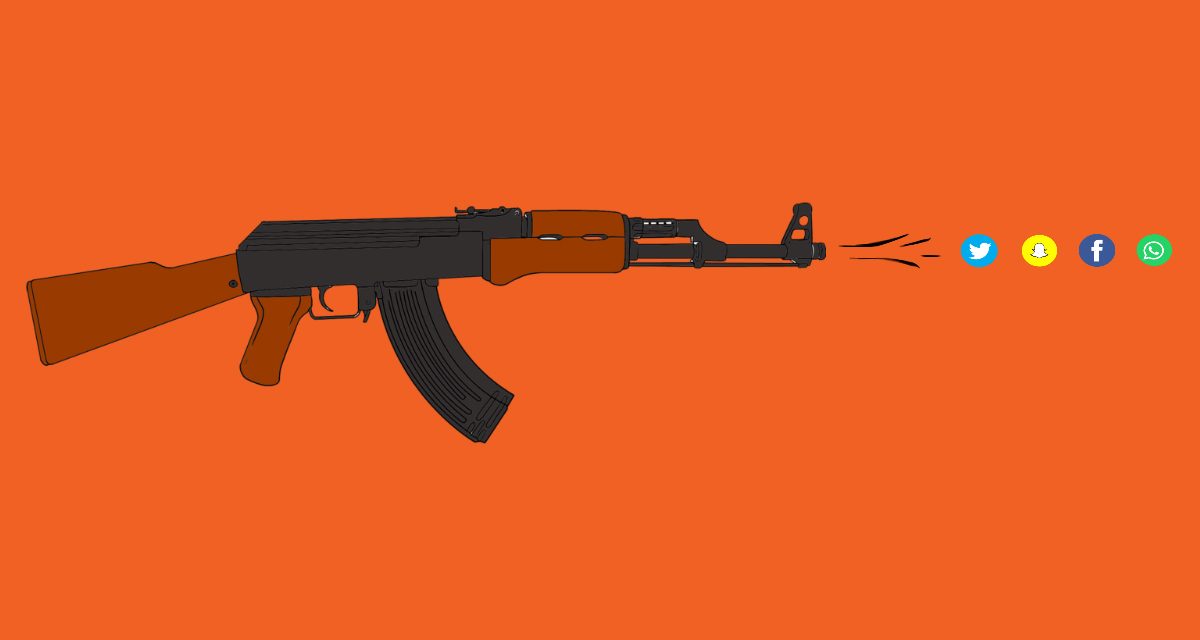Steve Leonard
In the mid-90s, the think tank circuit was abuzz with the concept of “revolutions in military affairs.” The central idea was that at key points in history, technological innovations with broad societal impact spurred subsequent revolutions in military capability. The advent of rail transport coupled with conscription enabled mass mobilization. The emergence of the telegraph allowed for near-simultaneous communication and the ability to closely coordinate and synchronize large military operations. Fusion of the internal combustion engine with mass-production led to the mechanization of warfare in the twentieth century. The invention of the integrated circuit chip heralded the digital age that fostered precision weaponry. As mankind approached Y2K, many of those same theorists were pondering the future: Where would the information take us?
In LikeWar, authors Peter Singer and Emerson Brooking seek to answer that question. In the classic sense of the term, the information age has seemingly ushered in a new revolution in military affairs, but one unlike any seen before. Initially, their treatment of social media is reminiscent of the think tank buzz of the 90s, with much of the discussion focused on its broad societal impact. The authors explore the history of the Internet (with an obligatory nod to the now-infamous 1994 exchange between Bryant Gumbel and Katie Couric), tracing the evolution of social media from its earliest days to the megalithic entity it represents today. Along the way, they firmly establish the tenets of effective social media—narrative, emotion, authenticity, community, and inundation—behind the campaigns that we consume so readily.
LikeWar is an eye-opening literary experience. Most of us access social media in some form on a near-daily basis, but do we really understand the phenomenon? Recent evidence suggests that we do not, and Singer and Emerson present a provocative case for the inherent dangers of “digital wildfires” in the midst of “emotional contagion.” From the “work-from-home Sherlock Holmes” to the “end of secrets” social media invades the very fabric of our existence. On any given day, we bear witness to online behavior that borders on sociopathic; in the Twitter-sphere, reason has given way to rage. Social media has obliterated the norms and barriers that once separated people: on any given day, ordinary citizens can interact with celebrities, politicians, and even terrorists in a way hitherto unimagined. No one can argue that the ubiquitous nature of social media has not revolutionized our access to and ability to exploit information.
But has the emergence of social media transformed warfare? While there is little doubt that it has influenced the landscape of conflict—the book’s vignettes on ISIS and the defense intelligence community offer compelling examples—the broader question of a revolutionary impact on warfare itself remains unanswered, at least for now. That does not mean we are not on the cusp of a revolution in military affairs. In fact, the confluence of social media, next-generation artificial intelligence, and open-source information could, within the coming decade, permanently and fundamentally change the way in which we collect and analyze information. In the same vein, the increased sophistication of the tools of cyber warfare, refined through the exploitation of social media, could soon present an existential threat to the nation-state as we know it today.
Nevertheless, Singer and Brooking offer a convincing, if disturbing, portrait of the pitfalls and potential of social media. LikeWar may not be quite “like” war, but that time might be much closer than we want to admit. However, while there are issues of increasing concern with social media (does, for example, the collapse of norms and barriers threaten a spiral into anarchism and social de-evolution?), we can also foresee the great benefits presented in a medium that unites humanity in a way previously unseen.

No comments:
Post a Comment